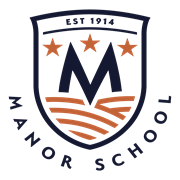Sociology
The Social Sciences department believes that studying sociology gives students the opportunity to delve deeper into society and understand how it functions through critically examining ways of life. It aims to create responsible citizens with awareness of social issues such as inequality, prejudice and discrimination, and encourage students to lead healthy and happy lives by developing awareness of social issues which they can apply in their own lives.
The knowledge and skills gained in Sociology aims to create students who are confident in developing and expressing their own informed opinions but are also respectful of the views of others.
By studying sociology, our students will develop transferable skills including how to:
- investigate facts and make deductions
- develop opinions and new ideas on social issues
- analyse and better understand the social world
This is an area of study that enables our students to examine human values and culture, understand relationships and social interactions. Through critical analysis and empirical investigation, we enable our students to gain a better understanding of social order and change. They examine social behaviour from a variety of perspectives to discover how such behaviour originates, develops and manifests. Sociology is a broad field of study and one which is relevant to us all. Study in this field allows us to question who we are and our place in society. It seeks to understand how our human experience is shaped by our identity and background and challenges the concept of the status quo.
Key Stage 5 Curriculum Information
Sociology A level is offered through the AQA specification, introducing students into the study of human behaviour and the effect of society on us, as well as our role in society. This promotes students to think about their place in the world and ask questions such as; why is the divorce rate increasing? Why do girls out perform boys in education? Why are there a disproportionate amount of black men in prison? Can you study human behaviour scientifically? Can the government design policies to help eradicate inequality? Does violence in the media cause the audience to commit violence? In Year 12 students study education and theory and methods, and families and households. In Year 13 students study the media, and crime and deviance with theory and methods.
A-level Sociology 7192 | Specification | AQA
Curriculum Leader
Claire Johnson
Psychology
Psychology provides students with the opportunity to explore human thinking and behaviour. The Psychology curriculum involves students learning about key psychological approaches, research and advances through history and considering the practical applications psychology has in society today. Psychology ensures that students are equipped with the necessary scientific knowledge, skills and vocabulary to develop a better understanding of the people around them as well as themselves.
Psychology enables students to demonstrate knowledge and understanding of psychological concepts, theories, research studies, research methods and ethical issues and be able to apply this knowledge in a range of contexts. Students are also given opportunities to analyse, interpret and evaluate psychological concepts, theories, research studies and research methods as well as being able to evaluate therapies and treatments, including in terms of their appropriateness and effectiveness.
Key Stage 5 Curriculum Information
Psychology A level is offered through the AQA A level specification covering options such as memory, attachment and psychopathology. Students also explore the study of Schizophrenia, addiction and aggression. Students also study research methods in order to evaluate how effectively we can research human behaviour and look for cause and effect links.
A-level Psychology 7182 | Specification | AQA
Curriculum Leader
Claire Johnson


